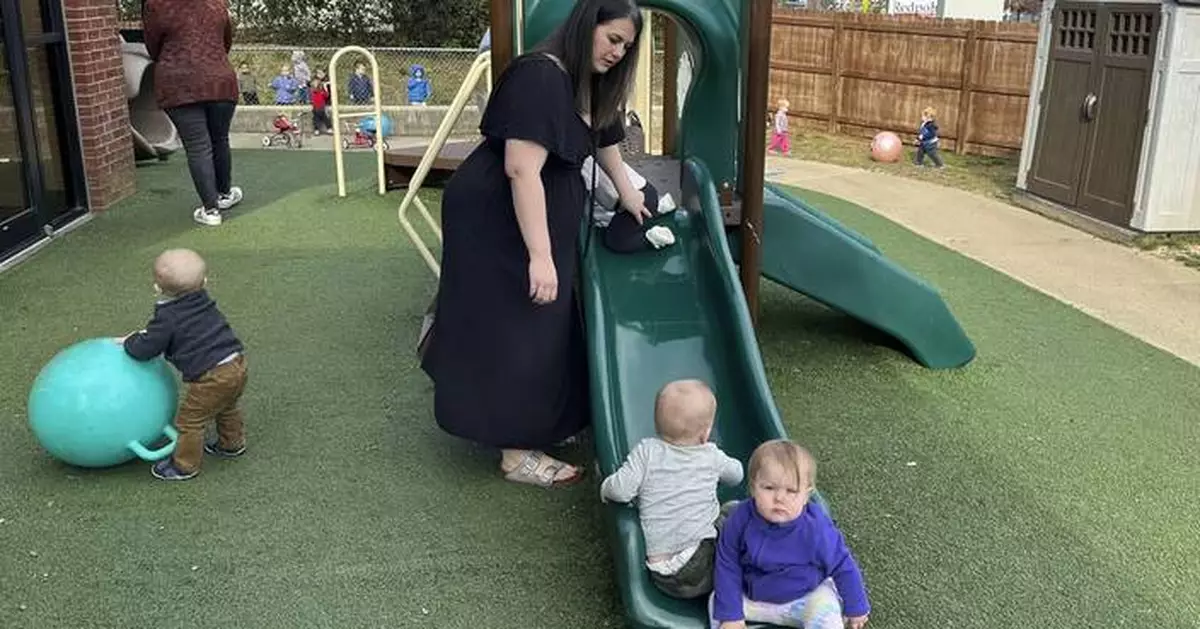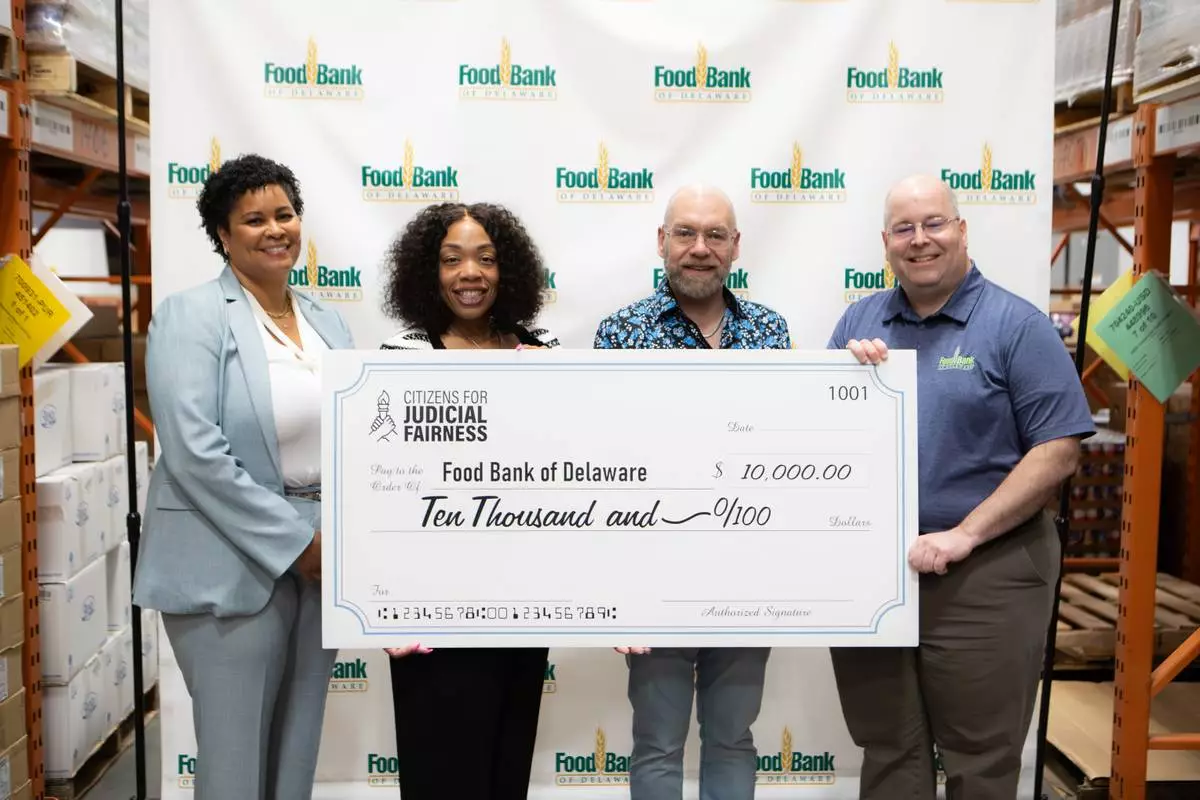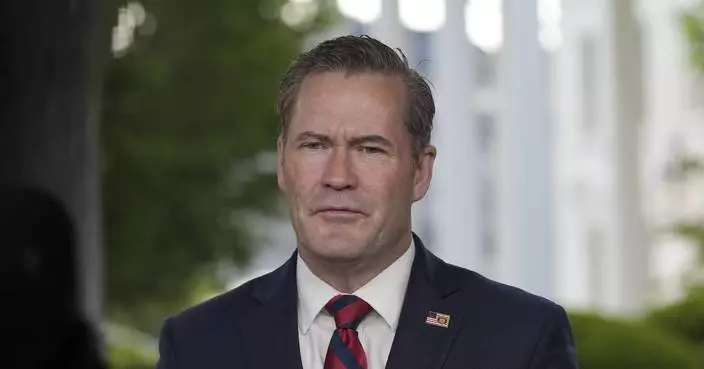PHOENIX (AP) — For parents who need to work but can't afford the steep cost of child care, federally funded scholarships can be a lifeline. Delivered through state child care assistance programs, the scholarships can mean the difference between a parent working full time — or not at all.
But qualified families increasingly are being turned away, thanks to the rising costs of child care and the end of pandemic-era funds, and some families that had scholarships have seen them end. In three states — Arizona, Colorado and Texas — parents who apply face long waitlists. Other states, including Nevada and Oklahoma, have increased copayments for parents or have said they will serve fewer children, according to the advocacy group Child Care Aware of America. In Idaho, enrollment was paused for part of last year.
Last week, the Trump administration laid off some employees who helped states implement child care assistance. It's left advocates worried about the future of federal child care programs.
“What it means is that ultimately child care will become less safe, it’s going to become more expensive, and it’s going to become harder to find,” said Ruth Friedman, who was the director of the Office of Child Care under former President Joe Biden.
As part of Trump's sweeping cuts to the federal government, the administration eliminated jobs in the Office of Child Care, which oversees federal child care subsidies and ensure states are enforcing safety standards.
All staff in five of the 10 regional offices were cut, along with more in the office’s headquarters in Washington. They included staff who upheld federal safety requirements for child care providers and ensured subsidies were being used effectively. They worked with states to enforce requirements to run background checks on child care employees. They also safeguarded programs from waste and fraud.
During the pandemic, Congress approved record spending to boost the child care industry, recognizing its importance to restarting the economy. States received $24 billion to help child care providers boost wages, buy masks and air purifiers and train staff, plus an extra $15 billion for child care assistance scholarships.
That money expired in September. Congress declined to extend it, despite a push from Biden and child care advocates. Since then, some states have attempted to continue programs with their own taxpayers' money. But many, such as Arizona, have ended special pandemic-era programs, like those that helped teachers pay for child care. Now, Arizona parents who apply for basic child care assistance are put on waitlists — with no clear end in sight.
“There’s a much bigger need than there are funds,” said Kim Kofron of the Texas-based advocacy group Children at Risk. “We know all of these families are willing to work.”
In Phoenix, child care worker Janeth Ibarra would have paid nothing last year for care for her twin boys, because she would have received a special scholarship for those in her field. This year, her income qualifies her for regular state child care assistance. But because the state ran low on money for the program, she was on a waitlist earlier this year.
As it stands, Ibarra, 22, earns $16.50 an hour and is paying more than $1,200 a month for child care, after a steep discount from her employer.
“Even with overtime, it’s barely survivable,” Ibarra said. At the end of last year, Ibarra had to spend the last of her savings on special formula for one of her sons, a purchase not covered by her food assistance benefits. She tried to breastfeed more to save money.
In Idaho, where lawmakers in 2023 rejected pandemic aid for child care, the state stopped accepting applications for its child care assistance program. When the applications resumed, the state tightened income restrictions. Now, the only families who qualify earn less than 130% of the federal poverty line, or $41,795 for a family of four. Before, a family of four could earn up to $56,000 and still receive a scholarship.
In Colorado, a dozen counties stopped accepting new applications for the state's child care assistance program because they ran out of money, The Colorado Sun reported.
Trump has been vague on his plans to make child care more affordable. He said during his campaign that he believed tariffs would rake in “trillions of dollars.” Child care, he added, is, “relatively speaking, not very expensive compared to the kind of numbers we’ll be taking in.”
Economists, though, have warned tariffs could cause prices for other household goods to skyrocket, squeezing family budgets, and it’s unlikely there would be much money left over for the government to spend if Trump successfully implements steep tax cuts. Advocates are concerned child care funding could be cut as the president seeks to shrink the federal government.
For states trying to maintain child care assistance scholarships, the costs of running the programs have risen. Because many child care providers operate in the margins, the Biden administration increased the amount they receive when they take scholarship students.
It's all evidence the problems that vex the child care industry have not necessarily abated with the pandemic, said Karen Schulman, senior director of child care policy at the National Women’s Law Center.
“The crisis was going on long before COVID,” Schulman said, citing the unaffordability of care for many families, along with the low pay of the child care workforce.
Even as providers struggle to make a profit, child care is prohibitively expensive for many families. In a study of 2022 child care prices, the Labor Department found the median cost of care for an infant in a center was more than $15,600 in large counties — higher than the median rent in many places.
When Brooklyn Newman divorced her husband, she moved with her two boys, now 2 and 4, into a trailer while she got back on her feet. The Phoenix mother was eager to send her older boy to preschool so he could have structure as the family weathered the split. But she could not afford tuition for her younger son until the preschool gave her a scholarship funded by pandemic aid.
With both boys in school half-time, Newman could put in more hours at her job as a freelance business analyst. But when the scholarship ended, she had to pay out of pocket — adding $1,000 a month to her preschool tuition. She made a painful trade-off: She juggled working in the evening while watching her children at home — sacrificing quality time with them so she can earn enough money to continue to send them to preschool.
“I’m constantly behind a computer, you know, giving everything I can,” Brooklyn said earlier this year, her voice tightening with emotion. Occasionally, her sons will hide her computer mouse to keep her from working.
But she can see growth from their time in preschool — in their language, in their confidence, in their relationships with teachers and classmates. “You’re watching them grow. It’s just the best feeling. And that’s why I do everything I can to have them there.”
The Associated Press’ education coverage receives financial support from multiple private foundations. AP is solely responsible for all content. Find AP’s standards for working with philanthropies, a list of supporters and funded coverage areas at AP.org.
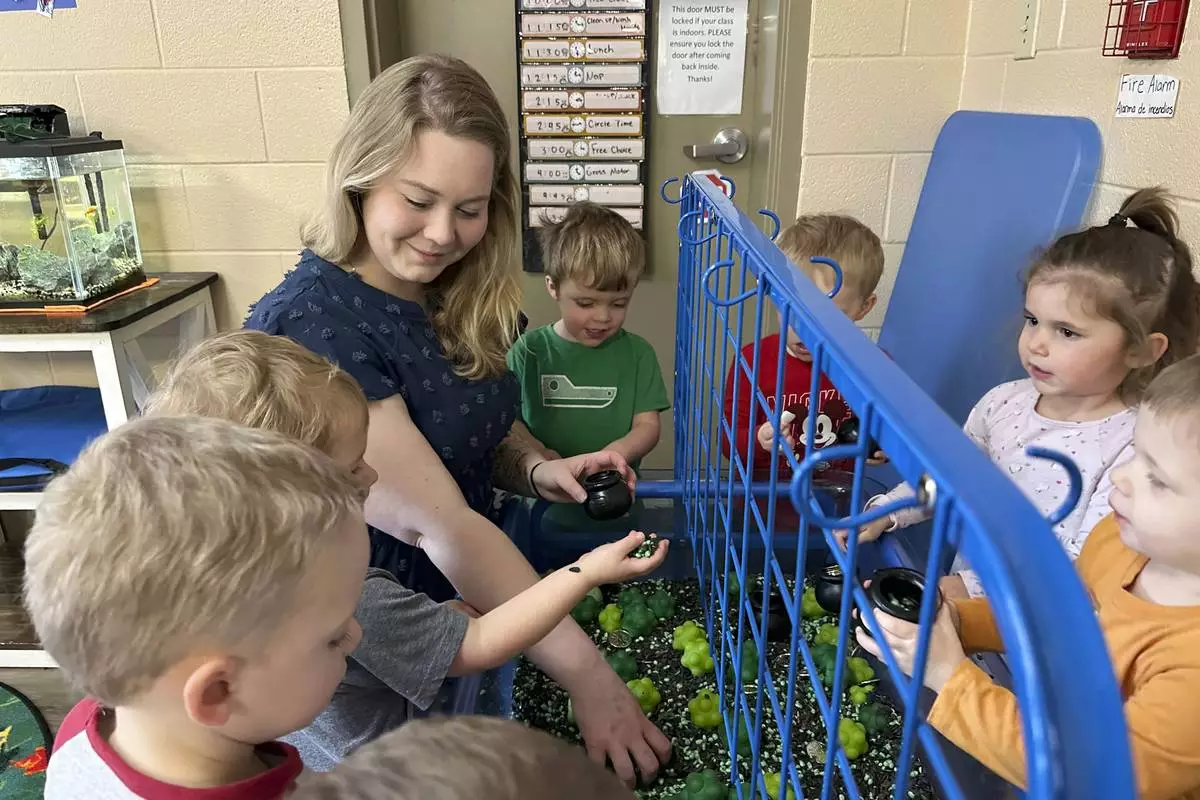
FILE - Rylee Monn plays with children in her class at a child care center in Lexington, Ky., March 13, 2024. (AP Photo/Dylan Lovan, File)
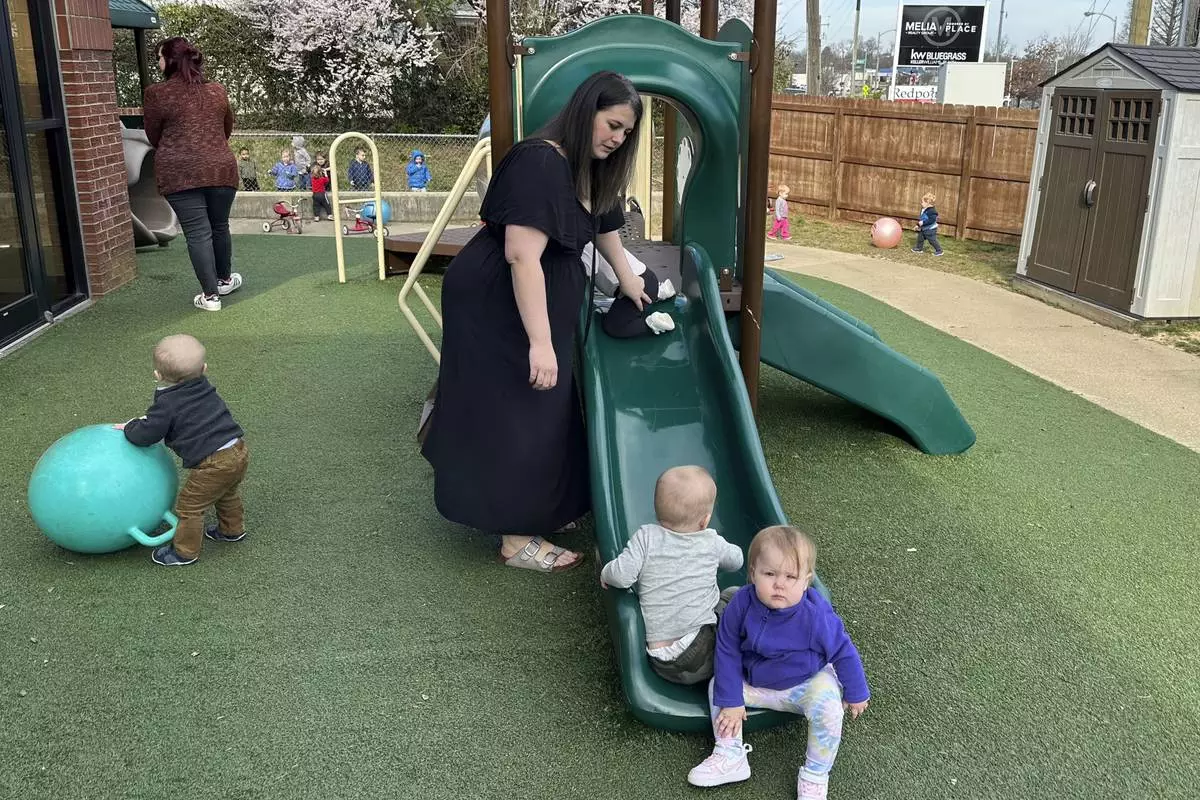
FILE - Delaney Griffin, center, plays with toddlers at the child care center where she works, March 13, 2024, in Lexington, Ky. (AP Photo/Dylan Lovan, File)


